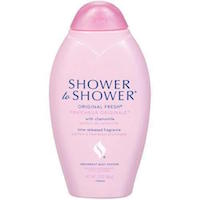
Previous St. Louis juries had awarded nearly $200 million to plaintiffs in similar suits. Gwen Myers of Imerys, a talc supplier for Johnson & Johnson, said the jury “followed the science that establishes the safety of talc.” However, George Stair, the lone dissenting juror, said afterward that he wished they “could have sent a message to Johnson & Johnson to put a warning on the product label.”
Stair is not alone. Doctor David Cramer, head of the Obstetrics and Gynecology Epidemiology Center at Brigham and Women’s hospital in Boston, has repeatedly called for talc products to require warning labels but has been unsuccessful. He has said that fewer people would use them if they were aware of the risks posed by the talc. A recently released study lead by Dr. Cramer reveals that women who routinely used talc powder on or around their genitals were 33 percent more likely to suffer from ovarian cancer.
The risks that come from long-term talc use are allegedly not new information for J&J. An external medical consultant for J&J in 1997 told the company that denying the link between it and ovarian cancer would be “denying the obvious in the face of all evidence to the contrary.” Numerous trials claiming the connection between talc and ovarian cancer have cited internal documents from Johnson & Johnson that allegedly show the company has been aware of, and had concerns over, the product since the 70s.
Currently, more than 2,000 suits across the country await trial in state in federal courts over the prolonged use of talc products. Plaintiffs’ attorneys have sought to consolidate the suits into a multi-district litigation. Nine New Jersey cases were recently consolidated because of “common factual issues [which] are sufficiently complex.” The consolidation of these trials could be the first step to streamline proceedings so that the needs of thousands of suffering plaintiffs might be met more efficiently.
Juries have found that Johnson & Johnson has known the risks of its talc products and has done nothing about them. As data continues to come to light that further cements the link between talc and ovarian cancer, one of the world’s largest healthcare manufacturers must weigh what they value more: money, or the lives of thousands of women that could be at risk from using their products.
